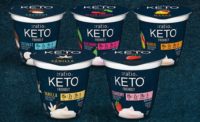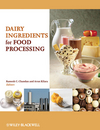General Mills Launches Three-Year Regenerative Dairy Pilot in Michigan
Yoplait is latest General Mills brand to support the company’s commitment to advance regenerative agriculture on 1 million acres of farmland

General Mills, the maker of Yoplait, Liberté and Mountain High yogurt products, announced the start of a three-year regenerative dairy pilot in western Michigan, a key sourcing region for its fluid milk supply. General Mills has partnered with consultants Understanding Ag and dairy cooperative Foremost Farms to pilot regenerative practices and provide support to participating dairy farmers. Implementing regenerative practices on dairy farms requires a holistic approach to managing land, cows and manure. This is the third regenerative agriculture pilot that the company has launched – and the first for its dairy ingredient supply – since making a commitment in 2019 to advance regenerative agriculture practices on 1 million acres of farmland by 2030.
“In order for regenerative agriculture to be successful, it must first be economically viable for farmers as a lever to help build operational and financial resilience,” said Mary Jane Melendez, chief sustainability and social impact officer at General Mills. “With this pilot, General Mills is committed to ensuring that the transition to regenerative practices will be beneficial to our dairy partners and enhance the overall health of their farms. We’re excited to be working closely with our supplier Foremost Farms and consultants at Understanding Ag to help us get this work underway and measure the impact.”
The three dairy farms in the pilot, which collectively manage more than 14,000 acres, were chosen for their proximity to General Mills’ dairy manufacturing facility in Reed City, Mich., which produces a variety of Yoplait products. As the pilot begins, Understanding Ag consultants will meet with each dairy farmer to co-develop and implement custom regenerative management plans for a portion of their operation. Throughout the pilot, partners will monitor data and measure impacts to soil, biodiversity, water, animal well-being and farm profitability.
Benefits of Regenerative agriculture are multi-faceted
Regenerative agriculture is a holistic, principles-based approach to farming and ranching that seeks to strengthen ecosystem and community resilience. These practices pull carbon from the air and store it in the soil and can help the land be more resilient to extreme weather events. Additionally, regenerative agriculture practices help to increase water infiltration, improve nutrient cycling, and reduce soil erosion which have been shown to positively impact the quality of nearby lakes, rivers and streams. These benefits can translate to farmers’ pocketbooks by ensuring that more nutrients stay in the field to be absorbed by plants rather than lost to wind or water erosion. Regenerative practices on dairy farms can look slightly different than row crop farms, specifically incorporating adaptive grazing on pastures and cropland.
Looking for a reprint of this article?
From high-res PDFs to custom plaques, order your copy today!






